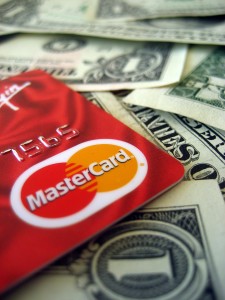February 10th, 2015 by Elma Jane

National Transaction Corporation and it’s medical software partners is introducing new “Payment Processing” solutions that can help your practice, securely and efficiently, capture payments and better serve patients. NTC offers a variety of solutions to accept patient payments/co-pays in the office, on the phone and online. With our solutions, you can make it more convenient for patients to pay via debit or credit card at the point of care to help drive more consistent cash flow. In addition we can help expedite receipt of claim payments using Medipaid, our new solution from NTC that replaces paper check payments you receive from insurance companies with fast, secure electronic deposits. Medipaid combines the convenience of electronic payments with standardized ERAs (electronic remittance advice) and automated posting options. It can help your practice accelerate cash flow and simplify reconciliation processes.
Here are some benefits when using this new and exciting program:
- Eligibility resolution
- Claims and tracking
- Rejections and denials
- Patient billing and payments
- Reporting and metrics
- Clinical tools
- 24/7 support
- Updated payer list information
- Payment Integrity/PCI compliant
- Tokenization & Encryption payment security (EMV microchip cards)
- Clinical exchange solutions
- HIPAA simplified
- E-payment (EFT & ERA)
- ICD-10 information on deadline set for October 1, 2015
- Regulation mandates from HIPAA and Affordable Care Act
If you are interested in learning more about our payment processing solution and Medipaid, we will be happy to e-mail additional information. Please feel free to contact us regarding any of your payment processing needs.
Contact Elaine Zamora RN @ 954-346-3300 Ext. 1111 or Email: elaine@nationaltransaction.com
Posted in Medical Healthcare, nationaltransaction.com Tagged with: cash flow, claim payments, credit-card, debit, electronic deposits, electronic payments, electronic remittance advice, insurance companies, paper check, payment processing, payments, solutions
December 5th, 2013 by Elma Jane
Recently, Consumer Reports reviewed 26 different prepaid cards and evaluated them based on different factors. The cards Consumer Reports considered to be the best scored well in each of these four factors:
- Clarity of Fees — How well the fees are disclosed.
- Convenience — Availability of in-network ATMs, bill pay features and how widely the card network brand is accepted.
- Safety — Whether funds are protected with FDIC deposit insurance.
- Value — How much they cost to use.
This is the first time Consumer Reports has evaluated and ranked prepaid cards, revealing a shift in the market for prepaid. As prepaid cards continue to grow in popularity, consumers are going to become savvier about which prepaid cards they purchase. Consider taking a closer look at this Consumer Report to determine how your financial institution’s (FI’s) prepaid offering measures up.
Highest ranked cards are those like the ATIRA suite of prepaid cards TMG’s clients issue. They have fewer fees and make it easier for consumers to avoid them, carry FDIC insurance for each cardholder, offer features comparable to traditional checking accounts and do a better job of disclosing fees.
Not surprisingly, the worst prepaid cards reviewed scored poorly in at least one, and sometimes several, of the above categories. All of the lowest ranked cards have high, unavoidable fees, including activation and monthly fees. Additionally, the lower scoring cards fail to make their fees clear and easy for consumers to access and understand.
Specifically, the report found some prepaid cards fail to provide clear explanations of how to use features such as electronic payments, text alerts and mobile remote deposit capture, and the fees that may be charged for them. Further, while all of the cards reviewed claim to offer some form of protection for consumers, the report found in these policies are often not clearly defined.
Consumer Reports also found it problematic that although issuers provide safeguards voluntarily, they can cancel them at any time. Additionally, according to the report, fee information is often hard to find and difficult to understand. The report states this problem is compounded by the lack of consistency with fee names and descriptions” from card to card, making it challenging for consumers to compare fees and costs. Consumer Reports also found that prepaid cards offered by some of the big banks are not necessarily less expensive than other prepaid cards. Also, these big bank offerings may be less attractive to consumers because they often don’t provide the option of making both electronic payments and payment by paper check.
Posted in Credit card Processing, Financial Services Tagged with: accounts, activation, ATMs, banks, bill pay, card network, cardholder, cards, costs, deposit, electronic payments, fees, financial institution, In-network, insurance, mobile remote deposit capture, monthly fees, paper check, prepaid, text alerts

